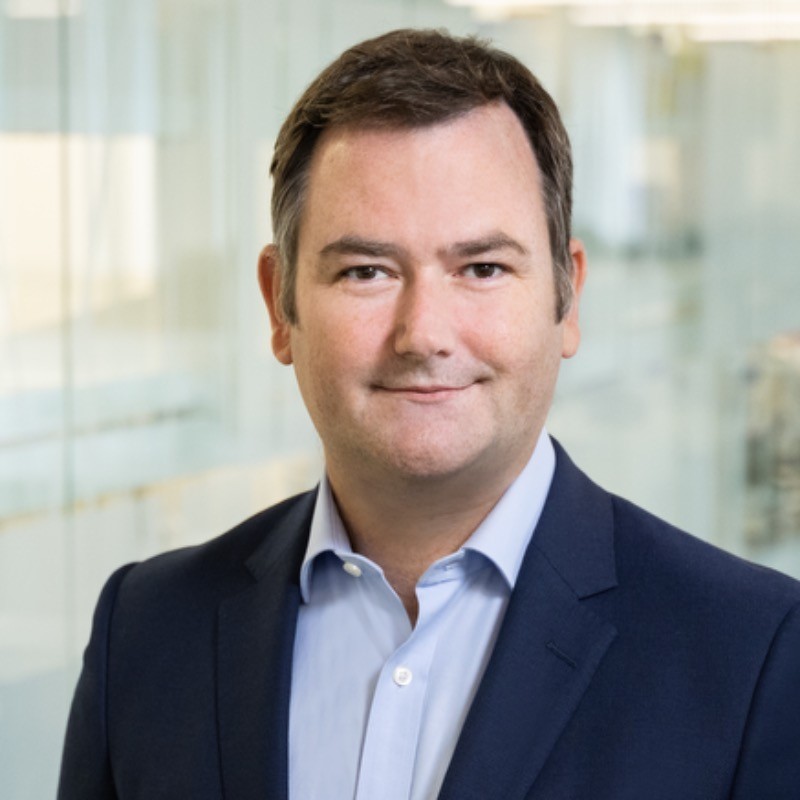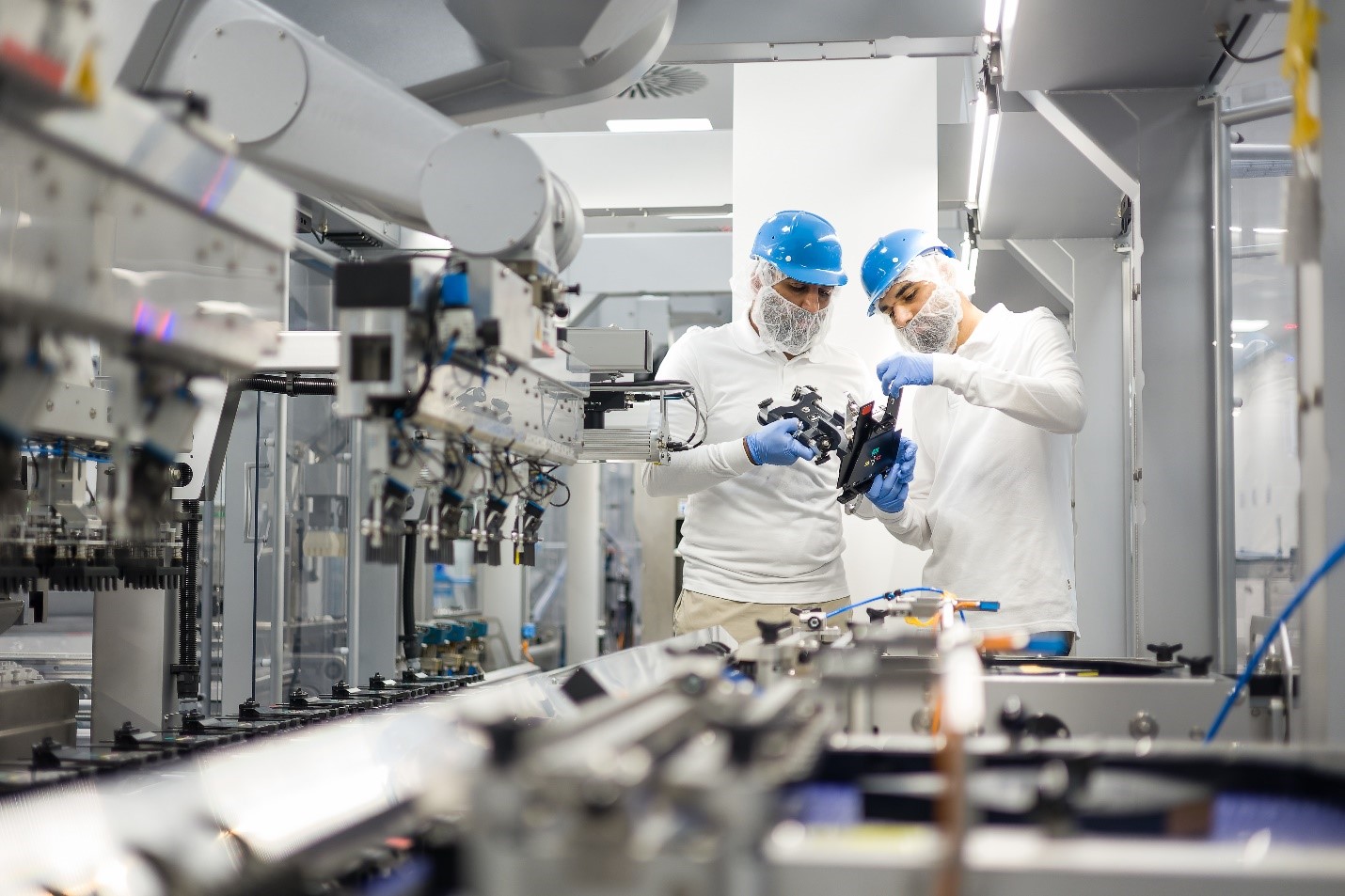Vietnam's Ministry of Health has recently approved Takeda's dengue vaccine, making it the first to be approved in the country, adding a new and innovative prevention method as part of an integrated prevention strategy in Vietnam to combat the rising public health threat of dengue.
|
|
| Dr. Derek Wallace, President of the Global Vaccine Business Unit at Takeda, led the successful dengue vaccine development project at the global pharmaceutical company. |
During his visit to Asia with a stop in Vietnam in September, Dr. Derek Wallace, President of the Global Vaccine Business Unit at Takeda, a global pharmaceutical company, and one of the key leaders of the vaccine’s development, shared insights into the research and production journey of this dengue vaccine, designed to protect against all four dengue virus serotypes.
Takeda has recently made headlines for its innovative efforts in dengue prevention globally, including in Vietnam. As an instrumental figure in this development process, could you share the inspirations behind what prompted you to join and commit to this mission?
I have always believed that vaccines are a cornerstone of public health, with the ability to make an incredible impact on people's and families’ lives over generations.
After witnessing first-hand the severe impacts of the dengue outbreak in Thailand in 2009, my commitment to this cause deepened.
That experience became the driving force behind my passion to lead Takeda's team on the development of this dengue vaccine, aimed at providing a proactive measure against this infectious disease.
Takeda's dengue vaccine is approved for the indication of protection against dengue fever. Could you share the journey of developing this vaccine?
As you know, dengue is a complex disease caused by four different virus serotypes, DENV-1, 2, 3, and 4, making vaccine development particularly challenging.
The development of Takeda’s dengue vaccine has a long and intricate history, dating back nearly 60 years.
While efforts to find a dengue vaccine began as early as the 1920s, significant progress remained elusive for many decades due to various obstacles.
Our dengue vaccine journey traces back to 1978 at Mahidol University in Thailand. The World Health Organization (WHO) Regional Office for Southeast Asia proposed a project for dengue vaccine research.
Mahidol University was selected as a partner. The university led the dengue vaccine research and development and later in 1986, the university discovered a live-attenuated vaccine that prevents DENV-2.
This became the crucial foundation for our current tetravalent vaccine. After 12 years of research, this effort culminated in creating a tetravalent vaccine capable of providing broad protection against all four dengue virus serotypes.
Over the past 11 years, under Takeda’s leadership, the vaccine has successfully completed a clinical development program involving 19 clinical trials, along with a total of 28,000 participants across 13 dengue-endemic and non-endemic countries.
Recently, our vaccine has been recommended by WHO’s Strategic Advisory Group of Experts (SAGE) for introduction in countries with a high dengue burden and high transmission intensity to maximize public health impact.
In addition to that, the vaccine has been included in the WHO’s List of Prequalified Vaccines, underscoring its quality and reliability as an important dengue prevention method suitable for public programs.
We are proud that our dengue vaccine is approved and endorsed for the protection of communities and people against dengue, including those that have had dengue previously and those that have not.
These global recommendations of Takeda’s dengue vaccine represent a major step forward in our mission to develop innovative vaccines that address the toughest public health challenges.
The WHO’s recommendations affirm the vaccine’s potential as an important tool within an integrated strategy to help reduce the global threat of dengue.
|
|
| Researchers in the laboratory at Takeda's Singen plant in Germany |
What are the key challenges you and your team have faced during the development phase and production of this dengue vaccine? How did Takeda overcome these barriers?
There were numerous challenges throughout the research process, one of which was the highly complex nature of the dengue virus, with its four distinct serotypes.
Achieving an immune response that provides protection against all four serotypes without increasing the risk of severe disease due to antibody-dependent enhancement (ADE) was a significant challenge which we were able to overcome. Additionally, the vaccine needed to ensure efficacy and safety across diverse populations.
Beyond the research phase, the production, especially the large-scale manufacturing required for commercializing the vaccine globally, was no simple task.
The tetravalent dengue vaccine demands a high-tech, complex, and modern process for production, storage, preservation, and transportation.
That is why we have been working closely with partners in Vietnam and other countries to devise efficient transportation and storage strategies that can ensure smooth management of the dengue vaccine administration.
Could you provide more details on Takeda’s high-quality standards throughout the entire dengue vaccine manufacturing process, including production, supply chain management, and global distribution?
Takeda’s first dengue vaccine manufacturing facility in Singen, Germany opened in November 2019. The facility supports the formulation, filling, finishing, and secondary packaging of our dengue vaccine.
In 2023, we expanded these capabilities with a state-of-the-art drug substance manufacturing building, making Singen the only Takeda facility worldwide capable of producing both the drug substance and drug product for our dengue vaccine.
|
|
| Inside Takeda's vaccine manufacturing plant in Singen, Germany |
The WHO’s List of Prequalified Vaccines inclusion of Takeda’s dengue vaccine on their prequalified list confirms its quality and suitability for public vaccination programs. This is an important step in broadening global access to Takeda’s dengue vaccine, especially in regions heavily impacted by the disease.
Recognizing the need for an integrated, multi-pronged response to this global health threat and the current demand for dengue vaccines, Takeda is committed to working closely with partners, along with governments and health authorities in countries where the dengue vaccine has been licensed to maximize the impact of our available vaccine supply.
Building upon existing manufacturing capabilities in Germany, Takeda forged a strategic partnership with Biological E. Limited in India last year to accelerate access to Takeda’s dengue vaccine in multi-dose vials, which will be available for government procurement in dengue-endemic countries to support National Immunization Programs.
We are on course to significantly boost our supply year over year, with a goal of reaching an annual capacity of 100 million doses by 2030 through a combination of in-house production and strategic external investments to meet the growing demand posed by this escalating public health threat.
With millions of dengue vaccine doses distributed globally, we are dedicated to ensuring our vaccines meet the highest safety and efficacy standards.
At Takeda, we maintain strict quality controls at every step of our medicine and vaccine production process.
What impact do you anticipate the dengue vaccine will have on public health outcomes, especially in dengue-endemic countries like Vietnam?
The dengue vaccine is expected to have a significant impact on public health outcomes, especially in endemic countries like Vietnam.
Dengue vaccine can help protect people who have never had dengue before, reduce new infections in people that have previously caught dengue, and lower hospitalization, which can result in significant economic benefits by alleviating the financial burden on healthcare systems and families, contributing to greater economic stability.
The WHO’s Dengue Vaccines Position Paper underscores the importance of prioritizing all available dengue prevention methods, including vaccination. To effectively prevent dengue and enhance public health outcomes, it is essential that integrated dengue management – encompassing vector control, case management, and community education – works in tandem with the introduction of the dengue vaccine.
Based on its assessment, the WHO has recommended that Takeda’s dengue vaccine will have the greatest public health impact in areas with a high dengue transmission rate.
The vaccine introduction should be accompanied by a well-designed communication strategy and community engagement.
Individuals will still need to take additional steps to protect themselves and their loved ones, thereby improving the implementation of preventive measures, strengthening public health efforts, and reducing the impact of dengue on communities.
Thank you for your time!
* At the end of this September, Dr. Derek Wallace, President of the Global Vaccine Business Unit at Takeda, and Dion Warren, Area Head of India & Southeast Asia (I-SEA), will be in Vietnam.
During their visit, Dr. Wallace and Warren will engage with Takeda's local team to officially launch the dengue vaccine in Vietnam, following its approval by the Vietnamese Ministry of Health in May 2024.
Takeda is currently the only manufacturer and importer of dengue vaccine to Vietnam.
The presence and participation of the global leaders underscore Takeda's effort to provide solutions that help address the significant global burden of dengue, especially in endemic nations like Vietnam.






















































